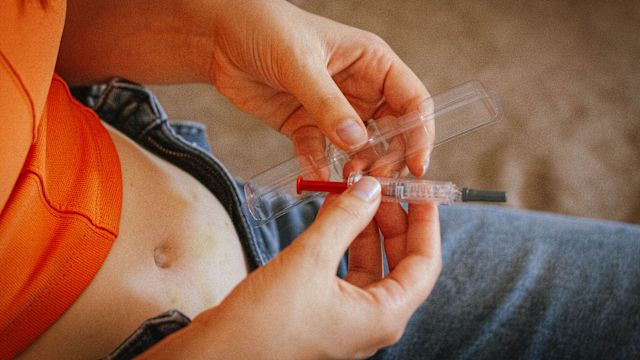Inflammatory bowel disease (IBD) refers to both Crohn’s disease and ulcerative colitis (UC), two chronic conditions that cause recurring inflammation and damage to the tissues that make up the gastrointestinal tract.
Both Crohn’s disease and UC are lifelong conditions that require ongoing management. While there is no cure for either form of IBD, IBD can go into remission with the right treatment. Remission refers to a period of time where a person is symptom-free and disease activity is low. It is a major goal of treatment for IBD.
Because Crohn’s and UC are lifelong conditions, they require ongoing management, and the medications and other therapies a person uses to manage IBD can change and evolve with time. The overall approach to how healthcare providers treat IBD can also change over time, as new research and new therapies become available.
Switching can be part of the treatment process
Switching treatments can be part of the process of treating IBD. When beginning treatment for IBD, there are two main approaches—step-up therapy and top-down therapy.
- With step up therapy, treatment begins by using medications that are considered less aggressive, less expensive, and carry a lower risk of side effects. A person then progresses (steps up) to more aggressive treatments until they achieve remission. This is sometimes called the traditional approach. It may be recommended if IBD is mild or moderate.
- With top-down therapy, a person starts with the more aggressive medications to achieve remission before switching over to maintenance therapy to keep the disease in remission. While the medications used are more powerful, they also carry a higher risk of side effects. This is sometimes called the “early aggressive approach” and is a newer strategy in treating IBD, with support from both medical researchers and patient advocacy groups, especially in cases where IBD is severe.
The way you and your healthcare providers approach treatment will depend on several factors, including the type of IBD you have, the symptoms you are experiencing, the severity of inflammation, the parts of the gut that are affected, your age, your overall health, your medical history, and your preferences.
Other reasons you may need to switch treatments
There are numerous other reasons a person living with Crohn’s disease or ulcerative colitis may need to change treatments. Examples include:
- You’ve experienced a flare up and need to take a medicine to get inflammation under control. Short courses of steroid medications are often prescribed. These are sometimes called rescue medications.
- Your current treatment isn’t working as effectively as you need it to. You may be experiencing symptoms, more frequent flares, or tests may show that the disease has become more active.
- A treatment has become less effective over time. This can happen with biologic therapies. Over time, the immune system may begin to make anti-drug antibodies that neutralize biologic therapies.
- You’ve changed insurance plans and a different medication is covered under your new insurance plan.
- A newer treatment becomes available and may be a better fit due to lower cost, fewer side effects, or being more effective for certain people.
- The treatment you’re on is causing side effects.
In order to get the most out of treatment for IBD, it’s important to follow your treatment plan. Skipping doses of a medication or stopping a medication can cause IBD to flare. Flare-ups can cause permanent damage to the GI tract and lead to complications. Any changes in how you treat IBD should always be under the guidance of your healthcare providers.
Questions to ask when changing treatments
As someone living with IBD, it’s important that you take an active role in your treatment, especially when making any decisions about what treatments to use. Here are some questions to discuss with your healthcare provider when switching medications or taking a new medication:
- Why is this medication being recommended?
- How does this medication work to treat IBD?
- How is this medication taken?
- What is the risk of side effects? How can you tell the difference between IBD symptoms and medication side effects?
- Are there any serious side effects that I need to watch for? What do I do if I experience one of these side effects?
- Am I at a greater risk of developing infections when taking this medication? What steps can we take to reduce my risk of infection?
- How long will I be taking this medication?
- How long will it take before symptoms improve? What if symptoms do not improve?
- How do I care for my body while taking this medication?
- Are there any medications, foods, activities, or habits I need to avoid?
- How do I minimize my risk of infection?
- What does this medication cost?
- What other treatment options do I have if this medication does not work?
It’s important that your healthcare providers know about all medications you are taking, including medications for other conditions, over-the-counter medications, and any supplements, including herbal supplements.






